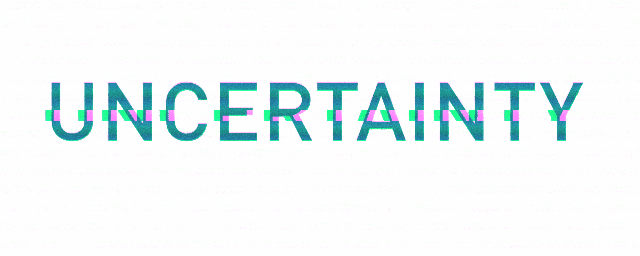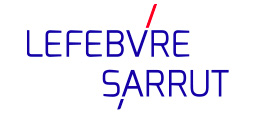There are so many ways of making predictions about the next 12 months. You may have read a couple of these predictions. Some are eagerly awaited, and some are just food for thought, like this one with a good visual design, or this short collection of 7 topics below I suggest we take away throughout 2021.

Uncertainty for sure! and for months…
Do you remember this paper in Science, dated April 2020? It stated social distancing would be necessary till 2022 to contain pandemic… Along with uncertainty is a new experience of reversibility (periods of full activity shortly followed by lockdowns and so on). Despite the vaccines and the new therapeutics, and because vaccine strategy appears to be unevenly displayed across countries, this situation may last for a while. That means, to begin with, that online courses and working from home are here to stay and will be more and more investigated and improved (see below).
Further readings: Vaccines Will Bring Economy Near Recovery By End Of 2021 (Forbes)
Pandemic / Syndemic
Crises (any kind of crisis) act as a magnifying lens and exacerbate inequalities. Some physicians and epidemiologists have talked recently about syndemic, to express the global way the pandemic affects people’s lives. Syndemic refers to precedent medical conditions emphasised by the current pandemic, worsening social and economic difficulties for those who are affected. Yet some others add that the context, which is very different from a country to another, matters the most. This pandemic era puts fundamental questions at stake: what should we cherish most? The citizens’ health or the national economy? Is there any sense in opposing those assets? The management and the social story of the pandemic in the US showed a sheer (and dramatic) contrast with our protective health policy (in Europe). How should we guarantee the resilience of one nation’s population, and its economy? The recovery we expect in 2022 relies first on taking care of people. A strong and efficient legal system, as well as sound health infrastructures, have shown to be decisive so far.
Further readings: Covid-19 is not a pandemic (Lancet)
A book [in French] by Eloi Laurent : Et si la santé guidait le monde?
GAFAM still rule (this side of) the world
Since the Trump election, since Cambridge Analytica, we know how far the giant tech platforms are not only monopolistic providers of useful solutions but also actual political players, with a huge power to influence and reshape political and social interactions, with democratic issues. The ban of Trump on Twitter, followed by Apple and Google turnarounds sounded kind of overreacting, and is new evidence of a cyberspace where tech giants mobilize their own policies and T&Cs whenever they want, rather than because they have to comply with law. Regulation is on its way, Europe is showing the path, with proven means. Among GAFAM, business-wise, we should pay attention to Microsoft in 2021. After decisive milestones during the pandemic around Teams growth, the next move deals with Machine Learning. Microsoft had put 1bn$ in OpenAI in 2019 and is now getting an exclusive license to use GPT3 in its products and techs, focusing first on business purposes, such as automated reports or presentations.
Further readings: Top cloud providers in 2021: AWS, Microsoft Azure, and Google Cloud, hybrid, SaaS players (ZDnet)
Microsoft Teams usage jumps 50 percent to 115 million daily active users (The Verge)
Acceleration yet sustainable innovation
“We’ve seen two years’ worth of digital transformation in two months” (Satya Nadella, CEO Microsoft in April 2020)
Necessity and constraints lead to innovation, and speed up transformation. It was fully proven last year. The pandemic has accelerated the use and adoption of tools and services to dematerialize business practice, which led some of our customers to get, as a start, e-signature and conferencing apps or mainstream collaborative work tools. In 2020, because of lockdowns, lists of essential services, key activities, we experienced a reality-check in the legal ecosystem. Overkill features, over sophisticated solutions happened to meet everyone’s attention and hardly no one’s need. Because of recession also, we may focus more on what’s really mandatory. With lockdowns, we measured also how far our world remains material, and industrial, and relies on strong supply chain management and a good risk assessment and ability to anticipate, including for digital services: it is not only about algorithms, it is also about servers and cables and amenities.
As a result, the supply on our markets could strongly readjust to address only essential needs. And we are expected to focus on what consumers might value the most. With recession, not only cost-cutting initiatives are on the go, but also a much more realistic approach for tech innovation: think DocuSign or boring tasks that can easily be scaled and automated, rather than comprehensive software suites. Put in one word: gain of efficiency, and productivity.
Further readings: The emerging resilients: Achieving ‘escape velocity’ (McKinsey)
Paywall
As a publisher, we experience the same evolution as in the news industry when it comes to business models, and freemium. Information in the age of social media is very widely disseminated, flat (many to many) and most often without a proper business model, apart from the old model based on digital advertising. Except for niches and very specific markets, small news outlets are at risk, as for the whole economic activity, where small businesses are prone to disappear. We witness a return of the subscription model, but it is a successful bet only for narrow niche, or at the opposite market leaders and big companies.
Further readings: Journalism, Media, and Technology Trends and Predictions 2021 (Reuters)
Digital wallet
Before we all get a vaccine passport, we may already have switched to digital wallets. Contactless transactions on a daily basis (BtoC) could lead to an acceleration of the use of digital wallets (Paypal, Venmo), or considering a fully virtual money. In China, payments through Alibaba or Tencent are way more used than the credit card (see JP Morgan analysis). We’re talking about e-commerce for the end-consumer but SMEs are prone to rely on digital wallet, for small transactions at a reasonable cost.How can this be relevant for our customers, for services providers, esp.SaaS services, and for anything that is purchased on subscription? We don’t know yet. But: the easier the purchase experience elsewhere, the heavier our way of pricing feels. And Patreon or Tipee are worth watching, as inspirations.
Further readings: Fintech’s Final Frontier: Central Banks and Disintermediation (a16z)
Working from home, remote learning
In 2021 working from home needn’t mean you will be facing a screen all day long. Here we are, for a while, in a world where the physical and virtual experiences as well as the professional and personal spheres coexist and intertwine. New or alternative UX are in the place, if not in the pipeline. For once, virtual and augmented reality techs have met actual applications (as far as fashion shows are actual life). Podcasts are booming. Books sales remain steady in the US or in France. Games on Nintendo Switch (Animal Crossing) or online (Fortnite, Minecraft) and streamers’ platforms such as Twitch host musical shows, politic talks, protestors… After teachers have started using Discord (a kind of Slack for gamers) for online teaching, conferencing apps have begun to integrate playful features, mimicking the game UX. The next learning experience may also occur in these environments.
